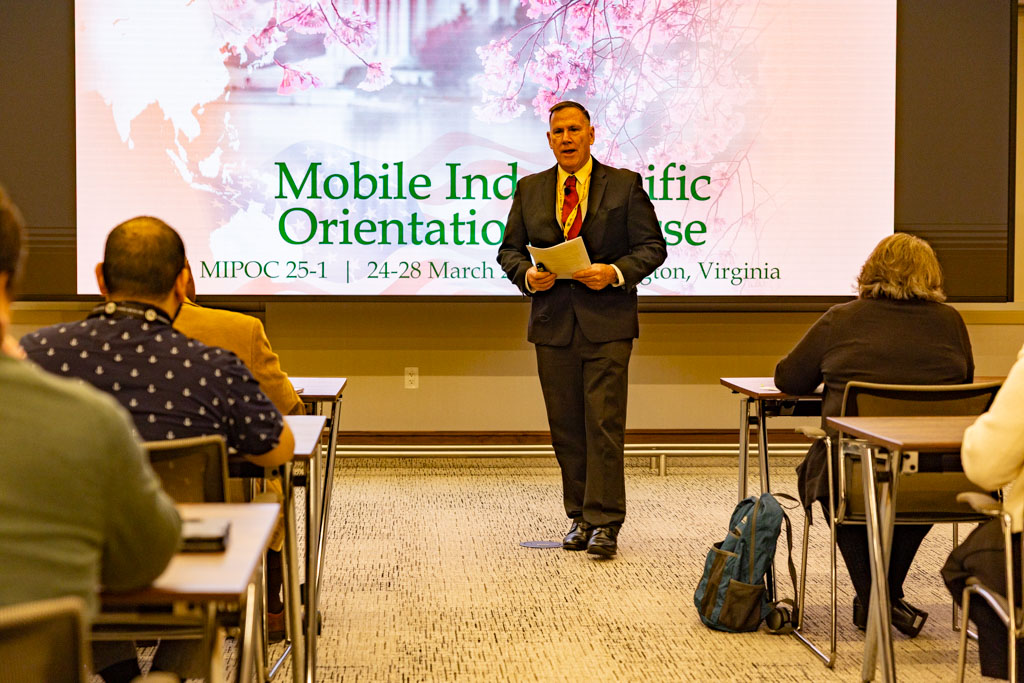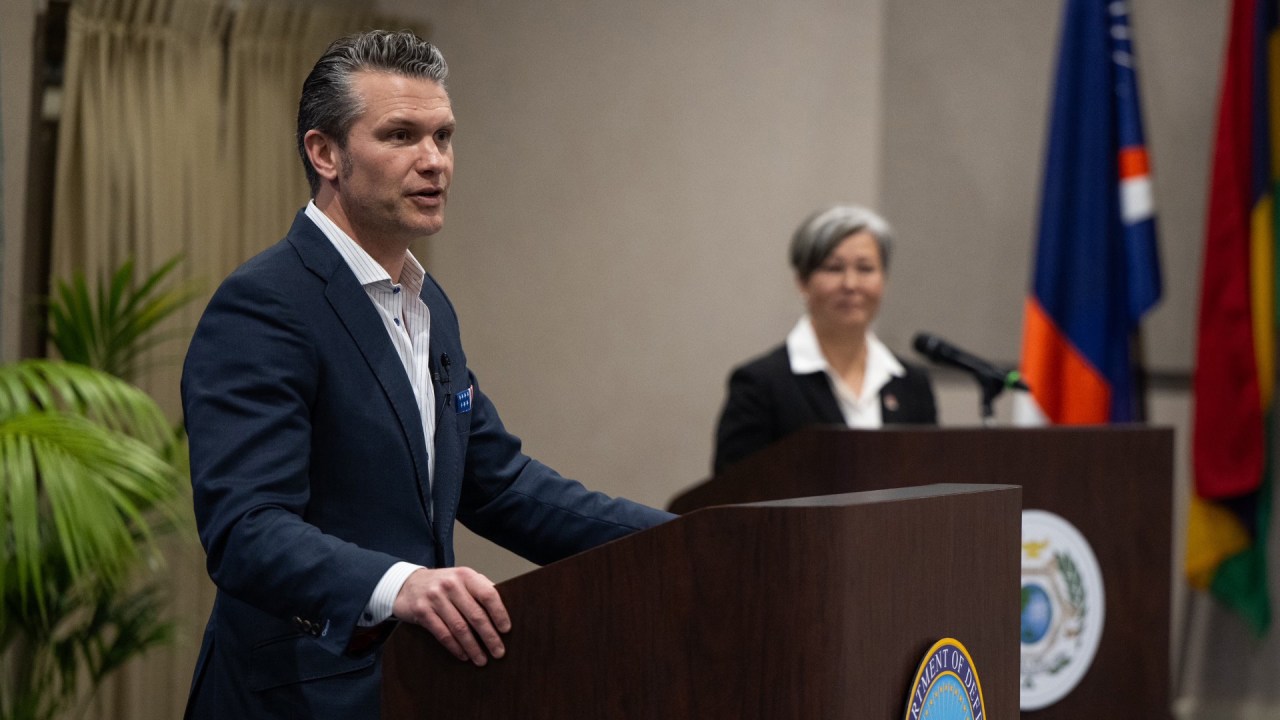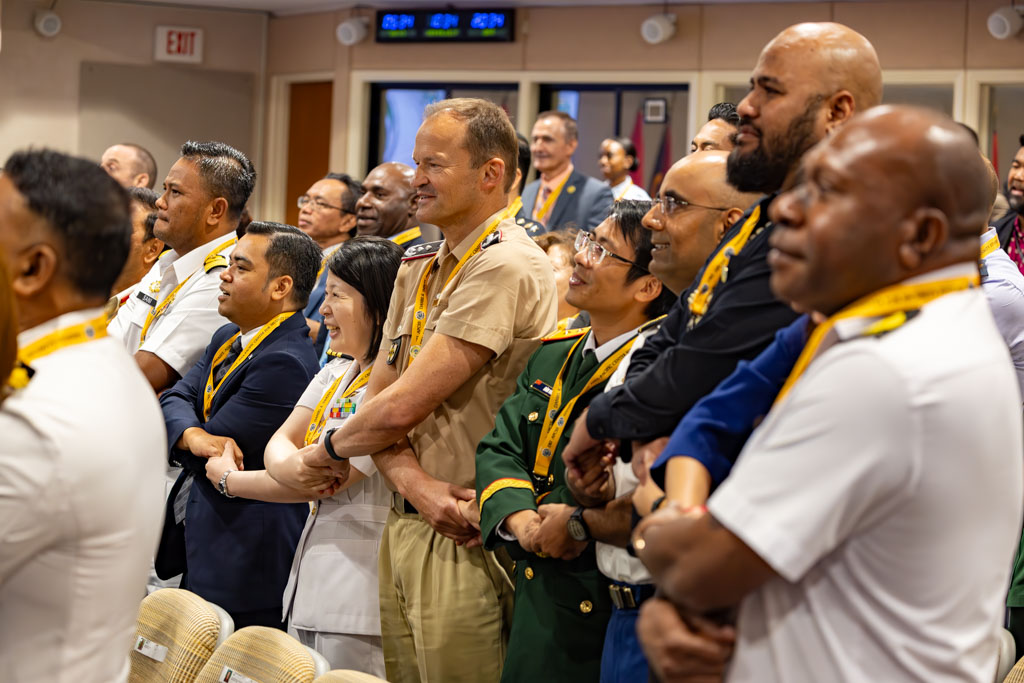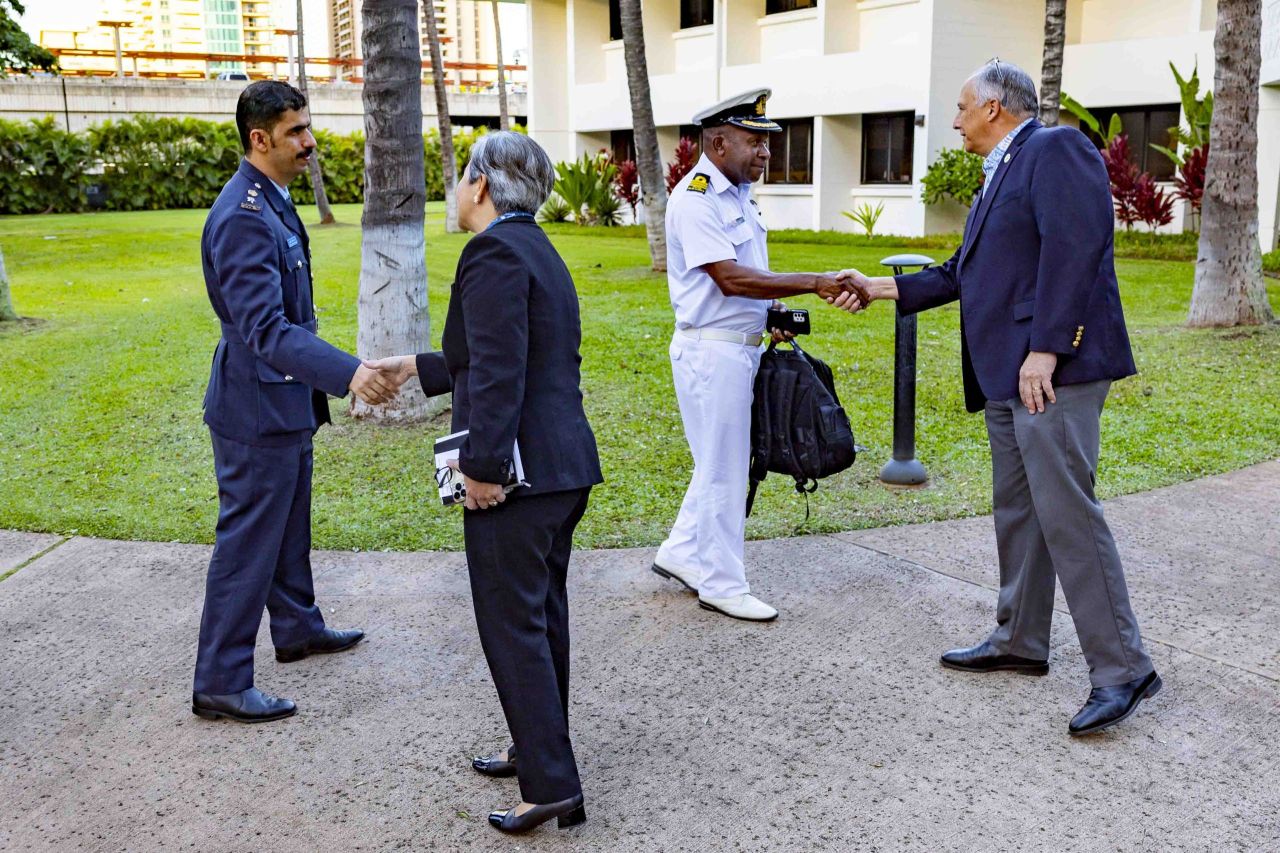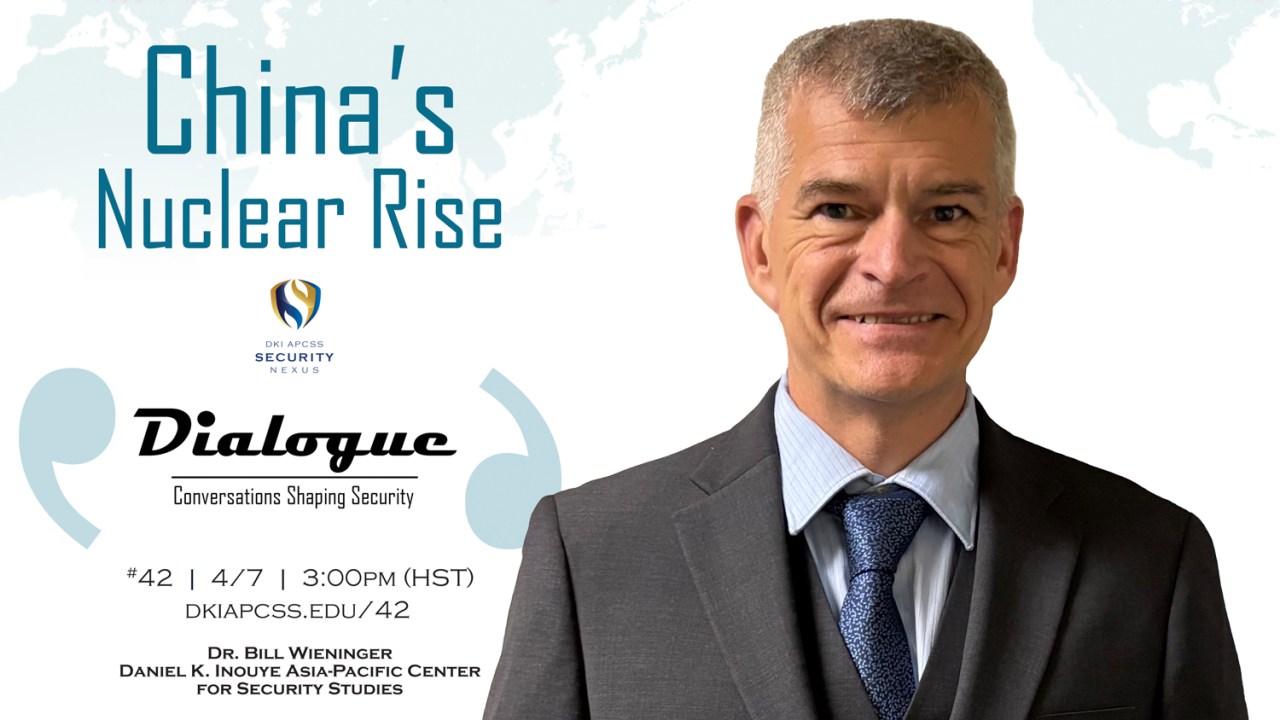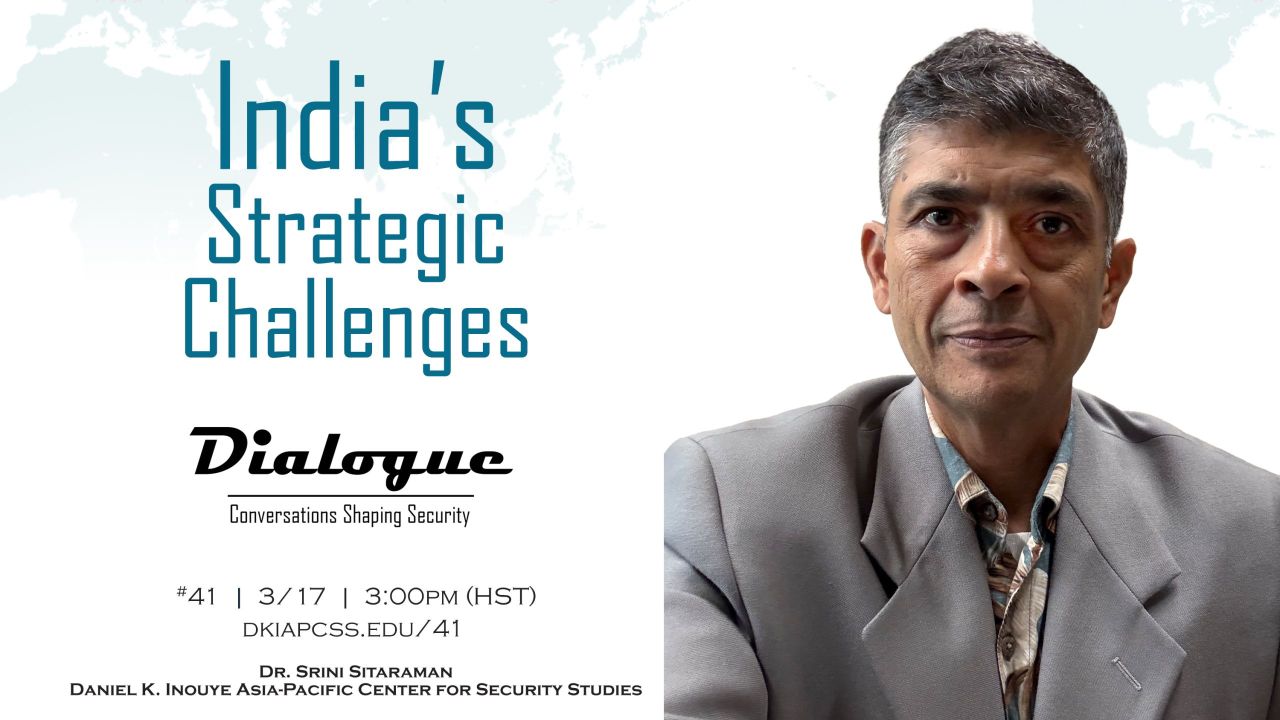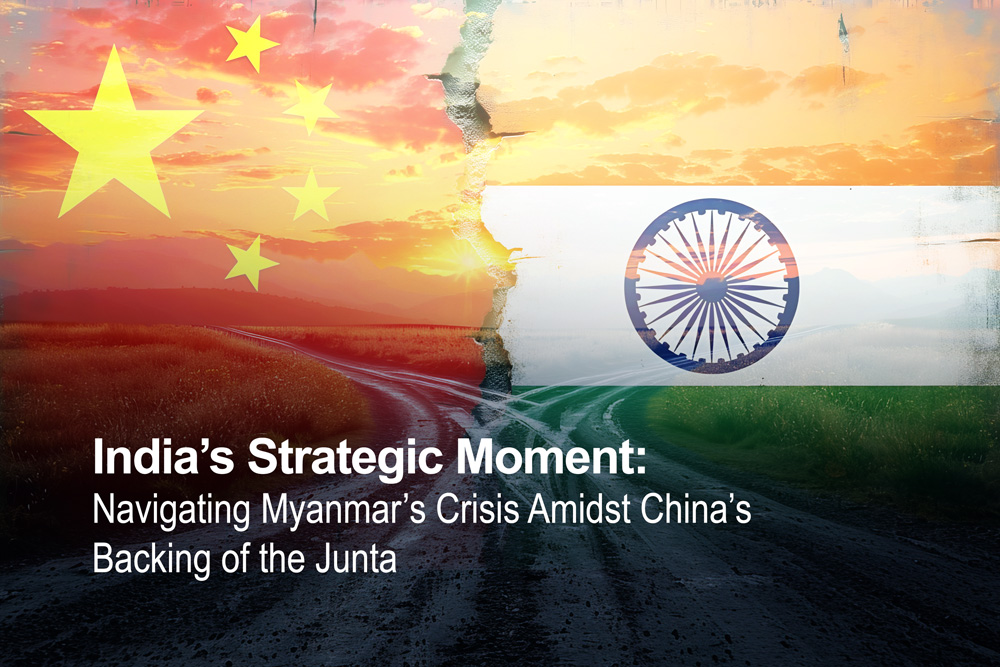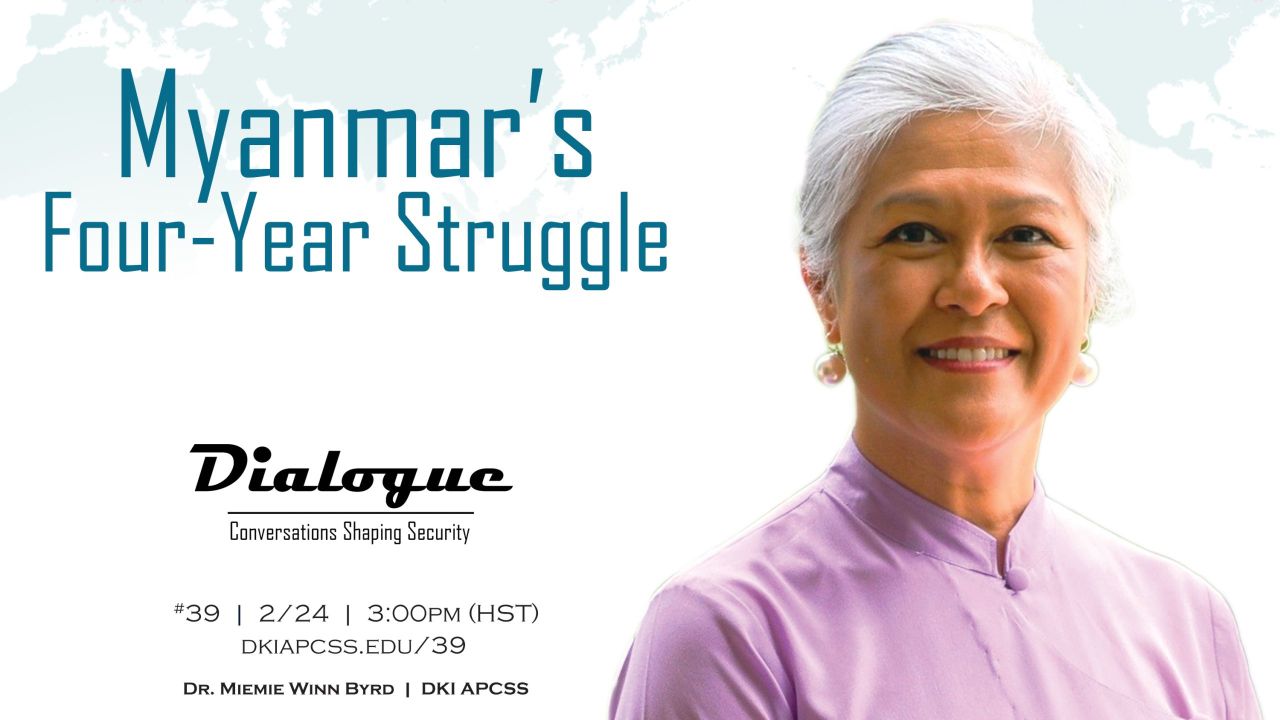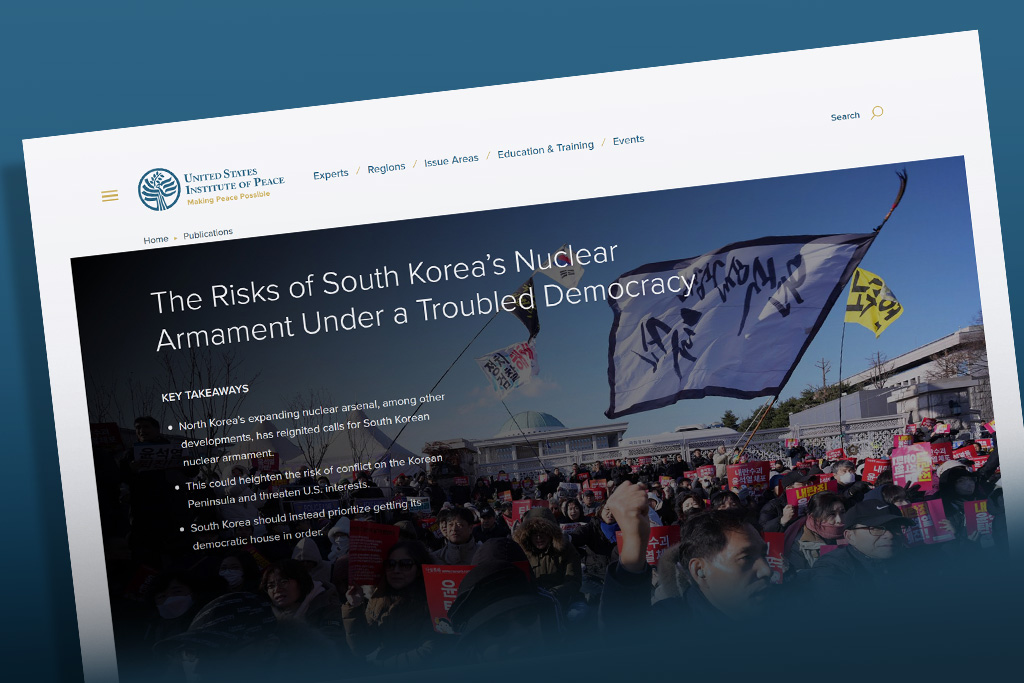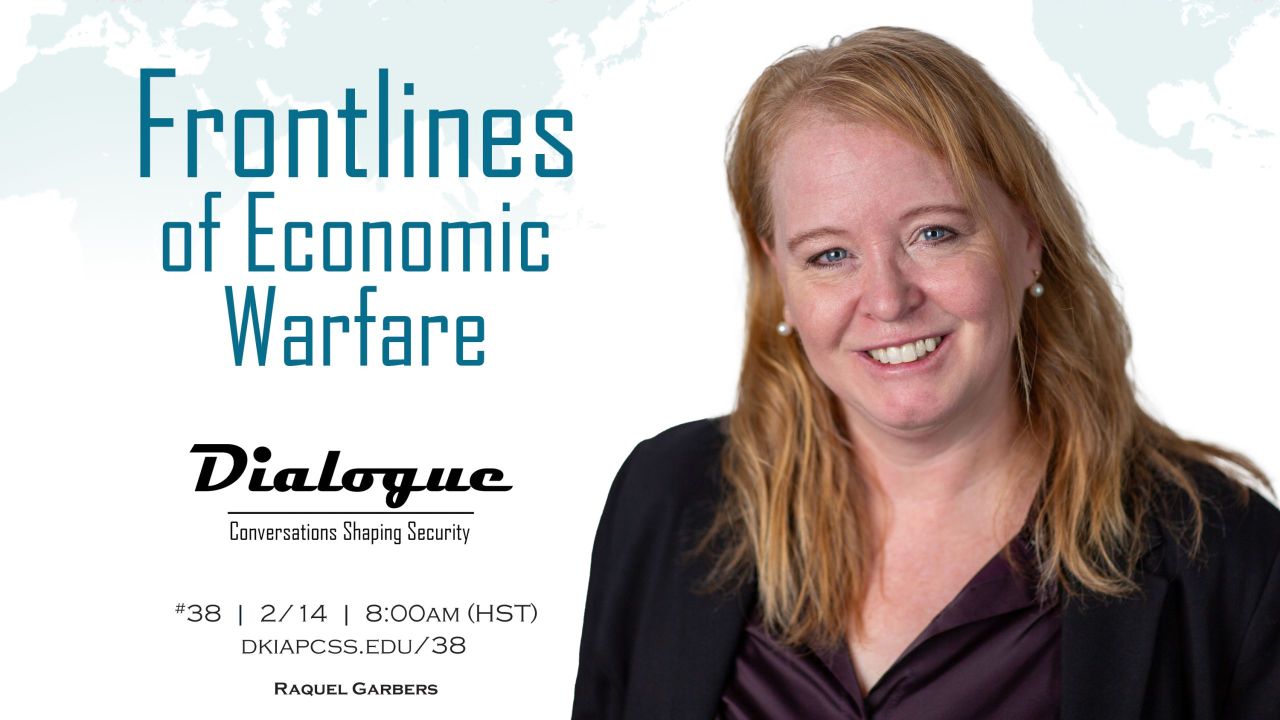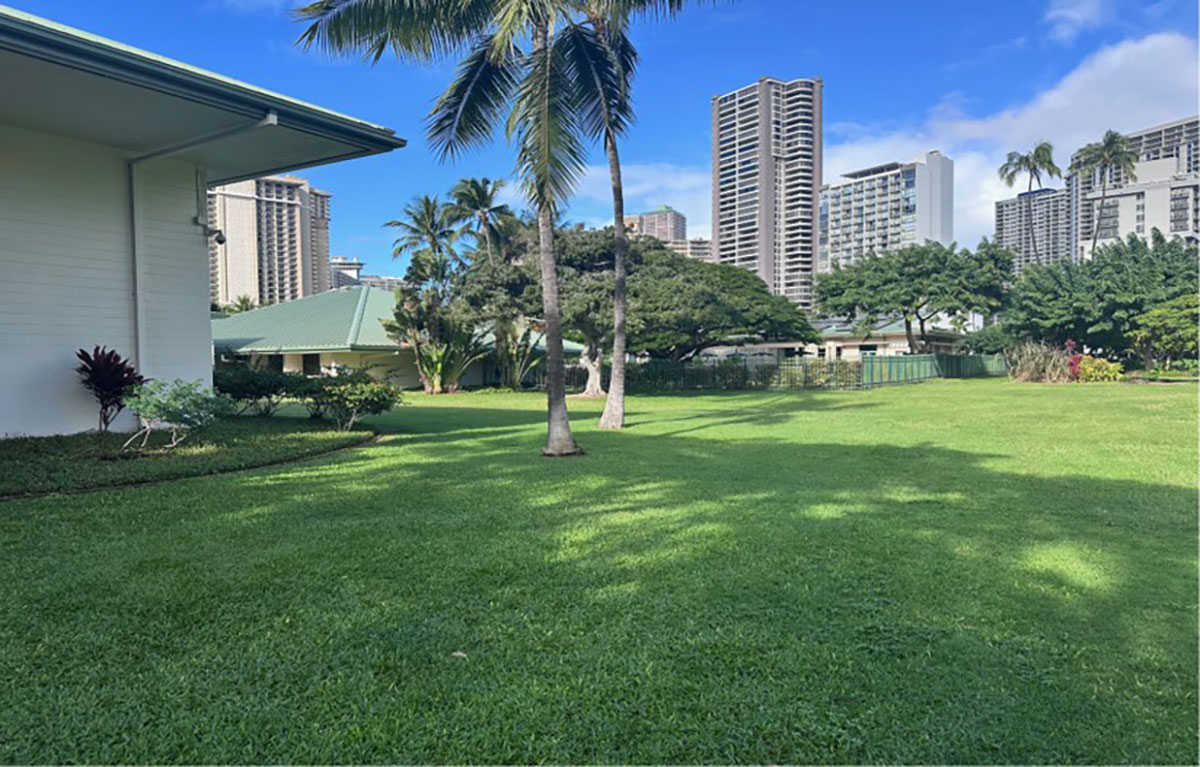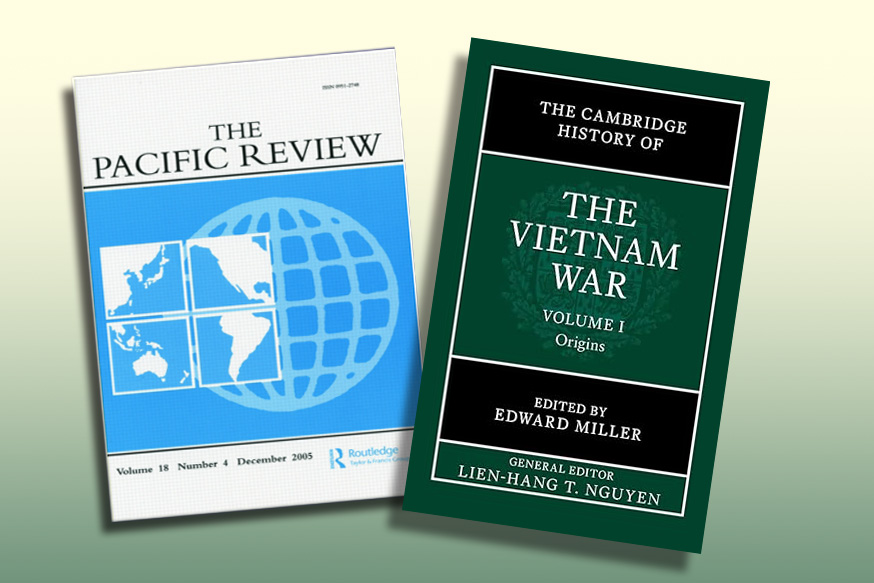DKI APCSS Spotlight
On March 25th, 2025, the 29th U.S. Secretary of Defense, the Honorable Pete Hegseth visited DKI APCSS to make his first address to the Indo-Pacific, the region of consequence in the 21st century.
DKI APCSS Returns to Washington for Mobile Indo-Pacific Orientation Course
WASHINGTON — After an eight-year hiatus, the Daniel K. Inouye Asia-Pacific Center for Security Studies returned to the nation’s capital to host the Mobile Indo-Pacific Orientation Course (MIPOC) from March 24 to 28, 2025. The event, the largest MIPOC to date, brought together 116 fellows from agencies including the Departments of Defense, State, and Homeland Security. Among them were 20 international participants representing 12 countries.
Hegseth Addresses Indo-Pacom Partnerships During First Trip to Region
Defense Secretary Pete Hegseth discussed his strategic vision for the Defense Department, as it relates to the Indo-Pacific region, while delivering remarks to alumni of the Daniel K. Inouye Asia-Pacific Center for Security Studies in Honolulu yesterday. Founded in 1995, the DKI APCSS is a DOD institute that offers a forum for military and civilian leaders from the region to come together and discuss local and global security matters.
A Story of Resistance in the Age of Algorithmic Irregular Warfare
Dr. "Lumpy" Lumbaca of the Daniel K. Inouye Asia-Pacific Center for Security Studies explores themes of technological overreach and human resilience in a piece published March 19, 2025, in Small Wars Journal. In The Sun Is Setting: A Story of Resistance in the Age of Algorithmic Irregular Warfare, Lumbaca presents a fictional narrative set in 2084exploring the rise of the Sky Global Algorithmic Network (Sky-GAN).
Critical Domains Take Center Stage during the Comprehensive Security Cooperation Course
Emerging challenges in critical domains were the key focus of the recent Comprehensive Security Cooperation (CSC25-1) course hosted by the Daniel K. Inouye Asia-Pacific Center for Security Studies from February 5 to March 12, 2025, in Honolulu. The intensive five-week course helped build capacity for allies and partners by leveraging the different perspectives, skills, and experiences of its multinational Fellows, which included 89 participants from 35 countries around the world. CSC 25-1 focused on critical security domains—Cyber, Space, and Maritime Security—providing Fellows with strategic insights into emerging challenges and opportunities. Through plenary sessions, scenario-based exercises, simulations, and specialized electives, the course fosters collaboration and strengthens the capacity of security practitioners to address complex security threats.
The Daniel K. Inouye Asia-Pacific Center’s Pivotal Role in Strengthening Indo-Pacific Deterrence Strategies
As the geopolitical landscape continues to move toward an increasingly multipolar system, the risk of miscalculations, conflict, and war likewise increases. As the U.S. increases its focus on the Indo-Pacific, it is important that both the U.S. and its allies and partners are well-prepared for the changing regional dynamics. U.S. Secretary of Defense Pete Hegseth has emphasized the importance of avoiding but being prepared for, confrontation with the Chinese Communist Party (CCP) in the Indo-Pacific theater. Avoiding war is best done through a variety of actions and will require the help of U.S. partners and allies. Achieving this preparedness requires strengthening the warrior ethos, contributing to deterrence, and enhancing alliances and partnerships. As the only U.S. Department of Defense regional center focused solely on the Indo-Pacific, The Daniel K. Inouye Asia-Pacific Center for Security Studies (DKI APCSS) actively contributes to meeting these U.S. national security objectives.
Dialogue | Episode 42: An Interview with Dr. Bill Wieninger on China’s Nuclear Rise
China’s rapid nuclear expansion is altering the global security landscape, prompting urgent questions about intent, deterrence, and strategic stability. As Dr. Bill Wieninger—former U.S. Air Force officer and current professor at the Daniel K. Inouye Asia-Pacific Center for Security Studies—explained in a recent Dialogue episode, “China’s nuclear rise presents a complex and evolving challenge.”
Dialogue | Episode 41 An Interview with Dr. Srini Sitaraman on India’s Strategic Challenges
India finds itself at the heart of a rapidly shifting security landscape, balancing the challenges of border tensions, maritime competition, and evolving defense partnerships. In this episode of Dialogue, Dr. Srini Sitaraman, a professor at DKI APCSS and an expert on Indo-Pacific security, offered a deep dive into India’s strategic calculations—from its uneasy standoff with China to its expanding defense cooperation with the United States and the Quad.
Security Nexus Paper Explores How Non-Warfighters Can Support U.S. Military Lethality
The Security Nexus paper examines how civilian and support personnel within the U.S. Department of Defense (DOD) can contribute to Secretary of Defense Peter Hegseth’s renewed emphasis on military lethality. The paper highlights the critical role of non-warfighters—including resource managers, logisticians, academics, economists, and cybersecurity professionals—in optimizing processes, streamlining decision-making, and supporting operational forces. It emphasizes that lethality is not solely about combat but also about strategy, logistics, innovation, and partnerships.
Security Nexus Paper Explores India’s Strategic Role in Myanmar Amidst China’s Influence
A Security Nexus paper, “India’s Strategic Moment: Navigating Myanmar’s Crisis Amidst China’s Backing of the Junta,” by Miemie Winn Byrd, professor at the Daniel K. Inouye Asia-Pacific Center for Security Studies, examines how China’s support for Myanmar’s military regime has fueled unrest while creating a strategic opportunity for India. The paper highlights rising anti-China sentiment in Myanmar and argues that India can redefine its role by engaging with pro-democracy forces and ethnic resistance groups. It outlines a roadmap for India to enhance its regional leadership through humanitarian aid, economic partnerships, and diplomatic advocacy.
New Security Nexus Paper Explores the Defense Industrial Base’s Role in Indo-Pacific Security
A new Security Nexus paper, “The Strategic Role of the Defense Industrial Base in Advancing U.S. Lethality, Soft Power, and Indo-Pacific Security,” by Deon Canyon, Associate Dean of Academics and Professor, and Carleton Cramer, Captain (Ret.), U.S. Navy, Dean of Academics for the Daniel K. Inouye Asia-Pacific Center for Security Studies, examines how the United States Defense Industrial Base (DIB) serves as both a military and strategic asset, enhancing deterrence, innovation, and regional partnerships. It highlights the DIB’s role in strengthening alliances, supporting economic resilience, and integrating emerging defense technologies in response to increasing geopolitical competition in the Indo-Pacific.
Dialogue | Episode 39 Myanmar’s Four-Year Struggle: Dr Miemie Winn Byrd on Myanmar’s Resistance, Regional Stakes, and the Road Ahead
Myanmar marks four years since the military junta seized power, plunging the nation into ongoing conflict and humanitarian crises. Dr. Miemie Winn Byrd explores the resilience of the Myanmar people, the impact of China’s involvement, and the lessons learned from other conflicts like Syria in shaping the nation’s future.
A new article by Dr. Lami Kim for USIP
Dr. Lami Kim’s latest article, “The Risks of South Korea’s Nuclear Armament Under a Troubled Democracy,” published by the United States Institute of Peace, explores the rising nuclear tensions on the Korean Peninsula. She highlights North Korea’s missile advancements and potential military ties with Russia, which have fueled debates over South Korea developing its own nuclear weapons. However, Kim warns that nuclearization could further destabilize the region rather than enhance security. She also raises concerns about South Korea’s democratic stability, arguing that restoring the rule of law is essential before making any decisions on nuclear armament.
Dialogue #38 Frontlines of Economic Warfare: Raquel Garbers on Canada’s Fight for Economic Sovereignty
As global economic conflict intensifies, Canada stands at the forefront of a high-stakes battle for resources, technology, and influence. In Frontlines of Economic Warfare, Raquel Garbers explores Canada’s vulnerabilities, strategic opportunities, and the urgent policy shifts needed to navigate this complex landscape.
DKI APCSS Upgrading Fencing for Security
The Daniel K. Inouye Asia-Pacific Center for Security Studies will begin installing new fencing around the Center at the end of February 2025 to enhance security. The upgrades will include new fencing at the front of the building, near emergency exits, and between Wings A and B. Additionally, the side gate exits and the security badging system will be upgraded. The $1.2 million project is expected to take six to eight weeks. Work will occur during normal business hours (8 a.m. to 4 p.m.), except when adjustments are necessary.
Dialogue 37: The Indo-Pacific Mosaic
In Dialogue 37, we explore rising geopolitical tensions and the increasing need to navigate the Indo-Pacific’s complex security landscape. Join us for a discussion on The Indo-Pacific Mosaic, a new book edited by Dr. James Minnich, which offers crucial insights and a path toward a more stable and resilient region.
Dr. Alexander Vuving’s New Publications on Vietnam’s Past and Present
Dr. Alexander Vuving has two new publications exploring Vietnam’s history and foreign policy. The first is a peer-reviewed article published in The Pacific Review (Vol. 38, Issue 1, 2025), titled “Bamboo in a Storm: The Russia-Ukraine War and Vietnam’s Foreign Policy (2022–2024). The second is a chapter in The Cambridge History of the Vietnam War (Volume 3: Legacies). Titled “Vietnam’s Search for Its Place in the World,” the chapter traces Vietnam’s trajectory since the war with the United States.



